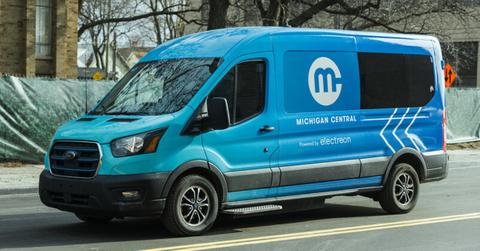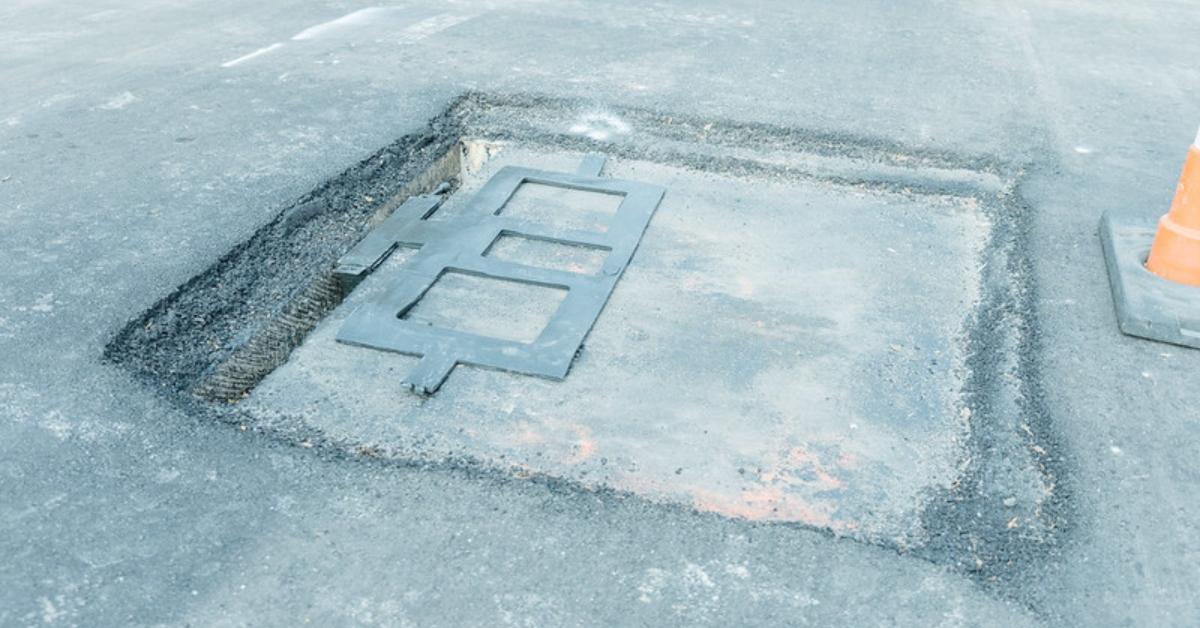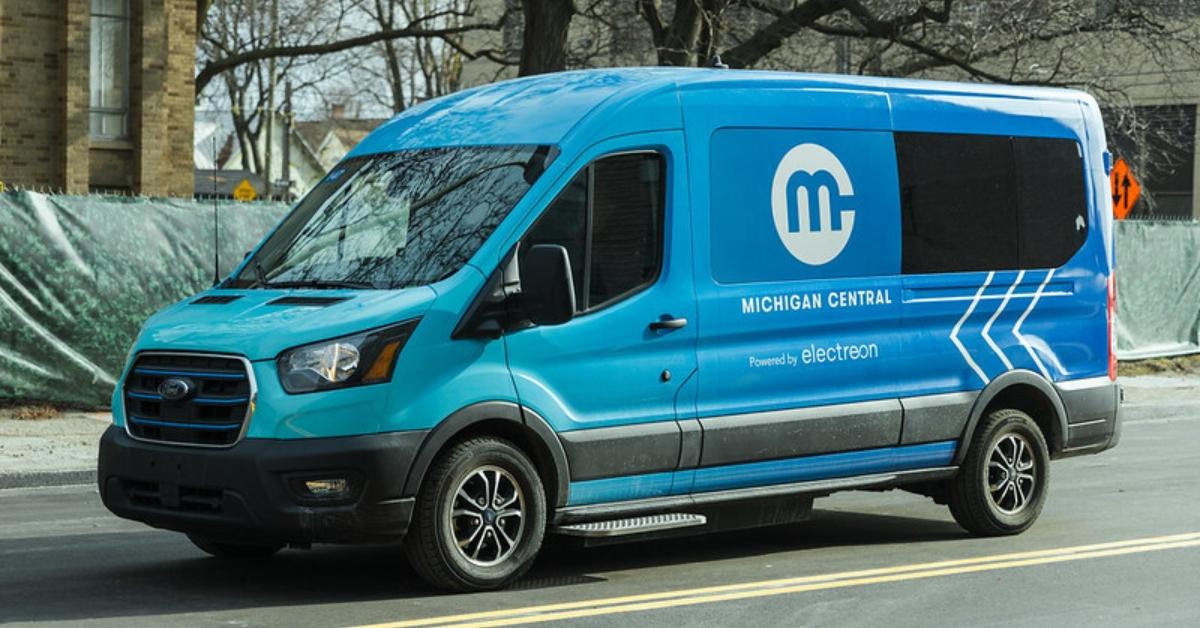The First U.S. Wireless Charging Road Is Installed In Detroit — What You Should Know
Published Dec. 7 2023, 2:44 p.m. ET

The Gist:
- Detroit is the test site for the first electric vehicle (EV) wireless charging road in the U.S.
- Similar roads have been built in France, Israel, Sweden, and Germany.
- Wireless charging roads may prompt more people to buy EVs.
Detroit has always been at the forefront of the automotive industry. It’s now blazing trails in the world of electric vehicles, with the first U.S. roadway able to charge EVs wirelessly as they drive.
The Detroit wireless charging road will serve as a test for building more roads in the future, the Associated Press (AP) reports. “In Michigan, we want to stay ahead of the curve. We want to lead the curve,” said Michigan Department of Transportation Director Bradley C. Wieferich to the AP. Here are more details on the wireless charging road in Detroit.

A wireless charging road is up and running in Detroit, Mich.
A stretch of road on 14th Street in Detroit has been equipped with “charging segments” of copper coils that send electricity wirelessly to EVs that have receivers installed. The electricity is transferred to the receiver-carrying EV if parked on the segment or driving over it, reported Cities Today.
The technology was created by Electreon, an Israeli company that has built other projects like it in France, Sweden, Italy, Germany, and Israel. The Detroit charging road is the first in the U.S. Electreon is working with the City of Detroit and MDOT on the project.
“We’re excited to spearhead the development and deployment of America’s first wireless charging road,” Dr. Stefan Tongur, Electreon’s vice president of business development, said in a statement. “Alongside Michigan’s automotive expertise, we’ll demonstrate how wireless charging unlocks widespread EV adoption, addressing limited range, grid limitations, and battery size and costs.”
Wienferich hopes wireless charging roads will one day encourage more people to switch to EVs. “Developing electrified roadways may be the catalyst to accelerate interest and acceptance of EVs for all consumers,” he said. “Making it easier for EV users to find a reliable charging source without disrupting their commute supports both fleet operations and passenger travel.”
Most EVs currently on the market need to be plugged into a station to charge, and some require hours of charging time. In 2021, President Joe Biden signed an infrastructure deal that included a plan to build thousands of EV charging stations across the country, the AP reported.
“This project paves the way for a zero-emission mobility future, where EVs are the norm, not the exception," Tongur explained. Electreon employees will begin testing the performance of the road in 2024 with a receiver-equipped Ford EV van.

How do wireless charging roads work?
The Detroit wireless charging road uses “inductive coupling between copper coils installed below the road surface” to communicate to receivers in the EV and “transfer electricity wirelessly through a magnetic field” to the vehicle battery, per a statement from MDOT.
“Each coil in the road is activated only when a vehicle with an approved receiver passes over the coil. This ensures that energy transfer is controlled and provided only to vehicles that require it,” MDOT elaborated. “The electric road is safe for drivers, pedestrians, and wildlife.”
The future of electric vehicles is bright with these continued updates.